5 Healing Benefits of Intermittent Fasting
I will often ask people, if there was something you could do that every great sage and spiritual leader throughout history have done, it would not cost you any money and it has a significant impact on your overall health and vitality, would you do it?”
Water fasting has been practiced by all of our ancestors unconsciously due to a lack of available food and consciously by many of the most intelligent and spiritually advanced people around the world. This healing strategy costs us no money and has an incredibly rejuvenating impact on our immune system and cellular mechanics.
The only challenge is that we have to break free from the societal programming that tells us we need to have 3 meals a day and snacks in between. We have to liberate ourselves from the idea that we are going to starve if we skip a meal.
The History of Fasting:
In biblical days, fasting was a normal part of a spiritual life. Jesus fasted for 40 days before beginning his ministry. Many of the prophets discussed fasting and Jesus, when talking to his disciples and followers said “When you fast…” This was discussed using the terminology as though fasting was a normal way of life for the Hebrew people.
The Greek historian Herodotus (484-425 BC), believed the Egyptians to be much healthier than the Greeks due to their regular fasting practices. He was quoted as saying that “the Egyptians are the healthiest of men, since each month for 3 days they conduct purification by vomiting and enemas, believing that a person receives all illness through food.”
Hippocrates, the Father of Modern Medicine, once said “The addition of food should be much rarer, since it is often useful to completely take it away while the patient can withstand it, until the force of the disease reaches its maturity. The man carries within him a doctor; you just have to help him do his work. If the body is not cleared, then the more you feed it, the more it will be harmed. When a patient is fed too richly, the disease is fed as well. Remember – any excess is against nature.”
The Greek philosopher Plato said “I fast for greater mental and physical efficiency.” He was saying that he felt as though fasting helped him be more efficient with both his mental and physical energy. The research shows that Plato was correct in that fasting improves both our metabolic flexibility and energy efficiency.
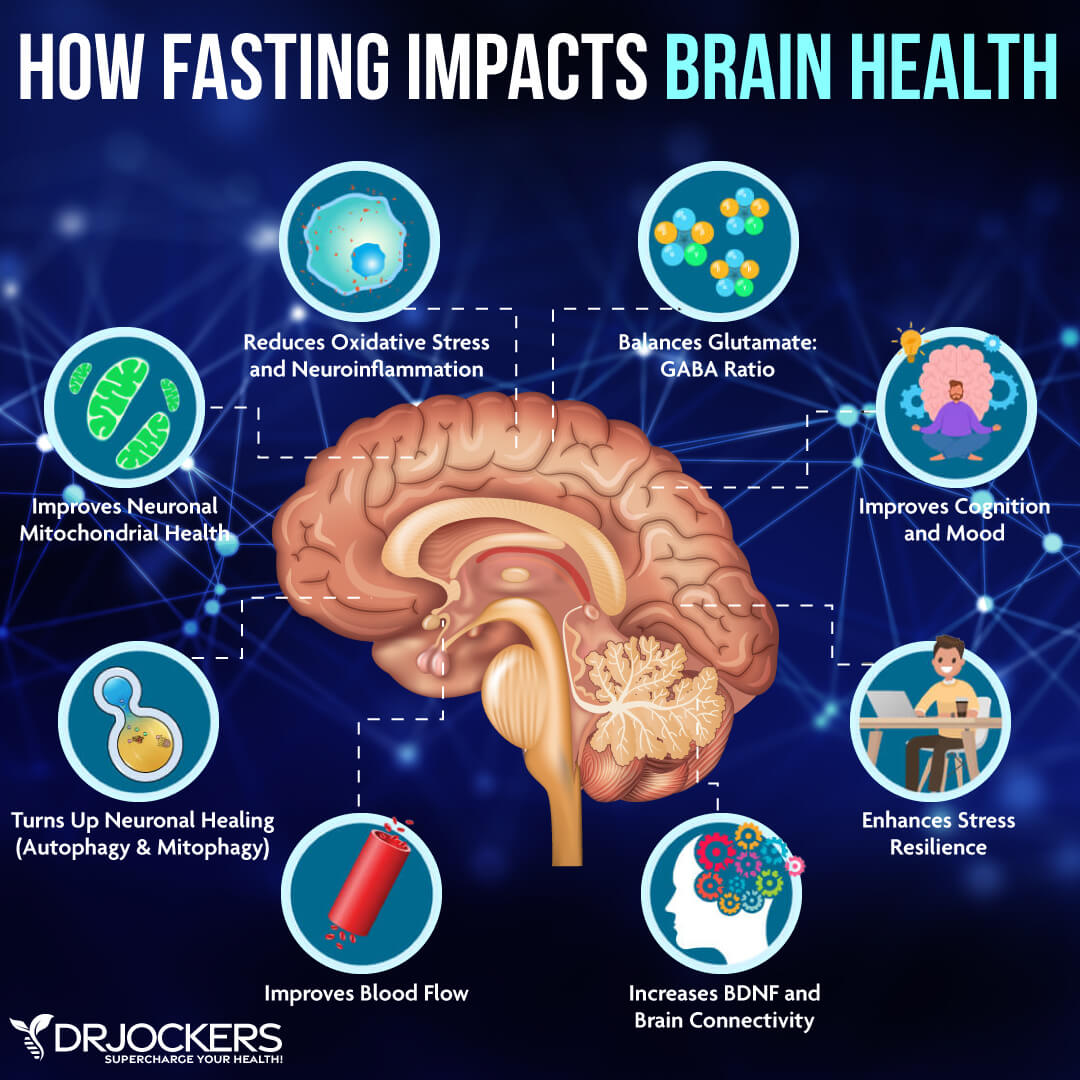
Metabolic Flexibility and Energy Efficiency
As we begin to understand how fasting benefits our body, we need to understand some basic terminology. The key terms are metabolic flexibility and energy efficiency.
Metabolic Flexibility: The ability to change our metabolism to meet the demands of our environment.
Energy Efficiency: Using our energy in the most efficient matter possible to regulate all the needs of the body.
As humans, we have had to adapt to a number of different challenging environments. We have had to run, climb, fight, lift, starve and kill in order to survive. Our ancestors did not always have access to food and would regularly have times of food shortage and famine. These challenges primed our physiology and gave us a stronger survival advantage through an ability to change our metabolism to meet the unique demands we face.
In 21st century society, we don’t have to do many of these things. We can basically sit back and stay stationary all day while continuously feeding ourselves. This causes a loss of metabolic flexibility and energy efficiency.
Our societal habits have cost us metabolic flexibility & energy efficiency, which make us weaker as a species and more susceptible to the development of chronic disease.
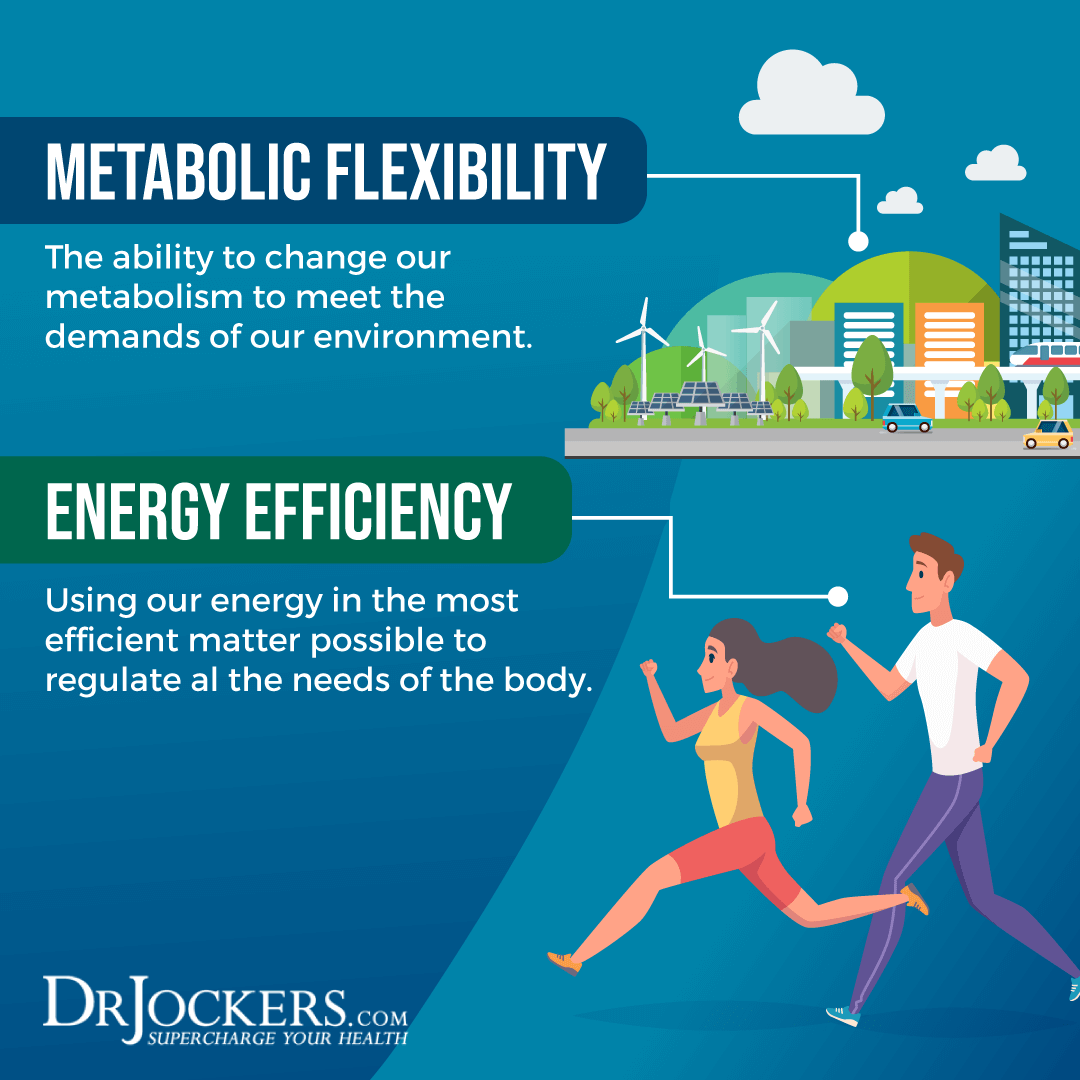
Improving Metabolic Flexibility
Someone with a high level of metabolic flexibility and energy efficiency will be able to immediately produce a high level of strength and speed to accomplish a particular task. They are also able to think sharply and clearly and be productive and creative in their endeavors. Finally, they are also able to comfortably go at least 16- 18 hours without food.
There are a number of different ways to improve one’s overall metabolic flexibility and energy efficiency. Here are 5 key ways:
All of these strategies work to help the body to run more efficiently. The purpose of this article is dive deep into fasting and therefore, other than touching on the ketogenic diet which plays a role with fasting, I will not have time to go into these other strategies.
The Fasting Transformation Book
If you want to improve your metabolic health and burn fat, improve your brain and overall energy levels…intermittent and extended fasting are incredibly powerful strategies.
That is why I want to introduce you to my best-selling book, The Fasting Transformation. It goes into the most recent scientific research and strategies for implementing intermittent and extended fasting into your life.
This book is the best book on fasting the world has ever seen and I have read them all! It is now, my great honor to present this to you and I am deeply appreciative of your support!
Ketogenic Diet or Cyclical Ketogenic Diet
A ketogenic diet works by restricting glucose and supporting the body’s ability to produce an alternative energy source called ketones. Ketones are the breakdown product of fatty acids that the body uses to produce cellular energy in the form of adenosine triphosphate (ATP). In order to produce and utilize ketones, we must restrict our consumption of things that turn into glucose. This includes both sugar and starch and high levels of protein.
Ketones produce an abundant amount of cellular energy (36 ATP) as compared to glucose metabolism (2 ATP). In addition, glucose metabolism produces a tremendous amount of metabolic waste and inflammation compared to ketone metabolism. This makes ketone utilization a much cleaner energy than glucose metabolism.
When the body is trained to use ketones for energy, it becomes much more metabolically flexible and energy efficient. The individual is able to go longer periods without food and is able to preserve muscle mass even in times of famine. Additionally, a ketone or fat adapted individual has lower levels of metabolic waste production and inflammation levels.
An individual who is fasting will burn fat stores and produce ketones. These ketones provide the energy source the individual needs to continue to move and do all the things necessary for living. Using ketones as a primary energy source helps the body to cleanse and detoxify more effectively during a fast.
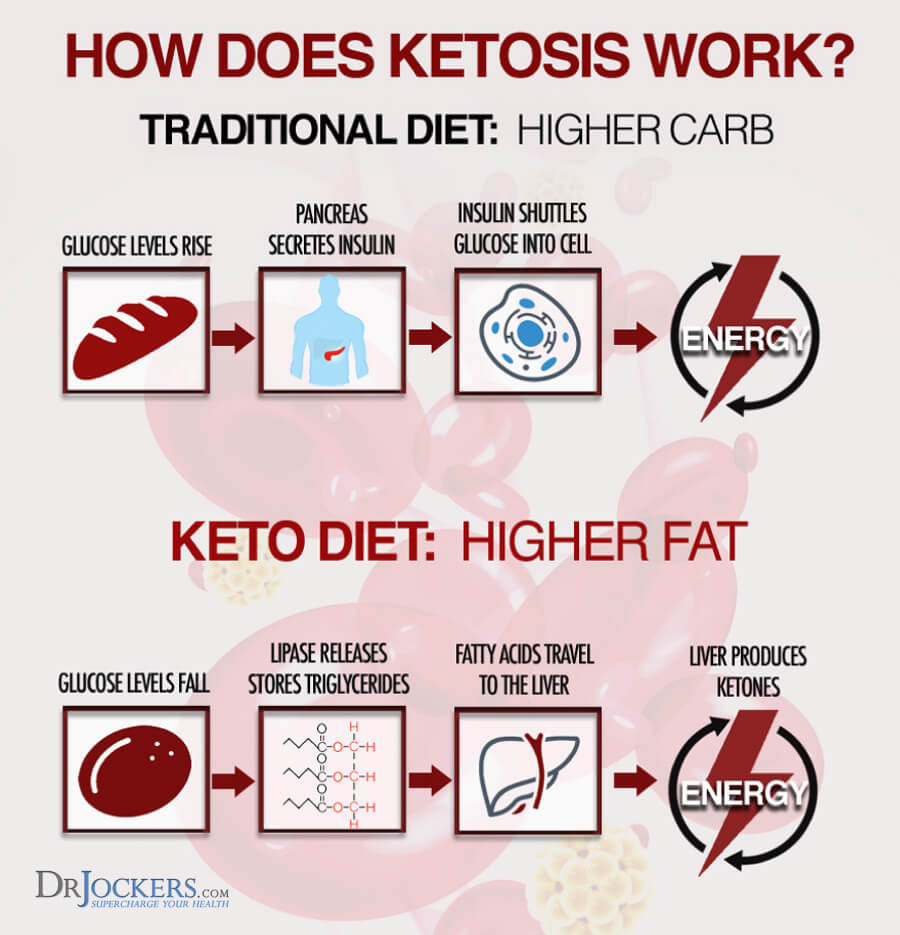
Energy Conservation
In physics, the law of conservation of energy states that the total energy of an isolated system remains constant, it is said to be conserved over time. The body (even though it is not exactly an isolated system) has a certain amount of energy it can produce at any given time. The key to great health is in how we are using that energy.
We need energy for a number of different systems of the body including the digestive system, the immune system, tissue regeneration, physical movement (kinetics), mental focus, etc. We have a certain amount of energy that remains constant in order to do all of these things.
Digestion is a very energy demanding process, meaning that it takes a lot of energy in order to breakdown and digest the food we consume and absorb the nutrients. Fasting allows us to utilize stored nutrients without the energy demand of digestion and challenges our body to be more efficient with the resources it has.
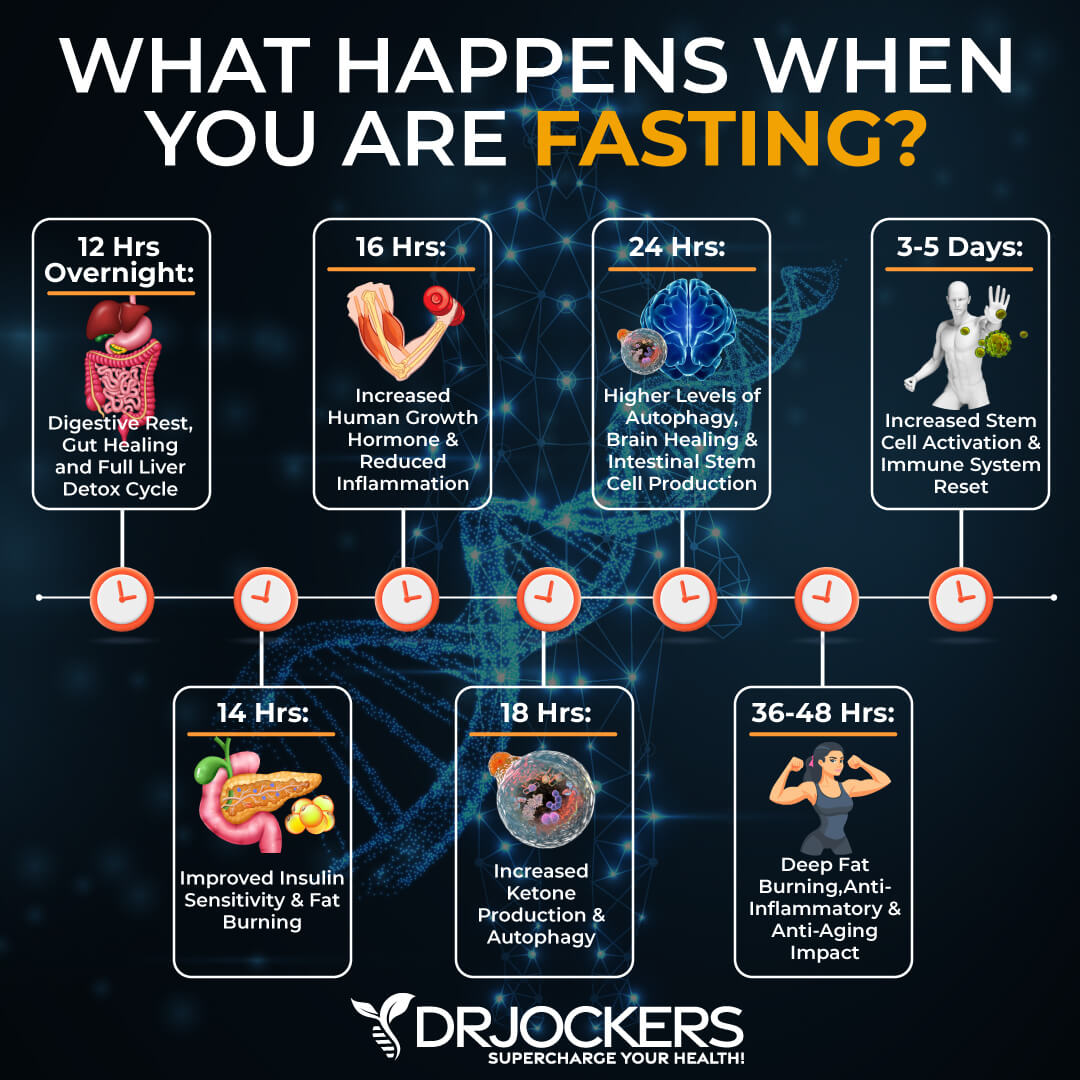
5 Benefits of Intermittent Fasting
When we eat food, we also increase inflammation in the body. We do this, even when we consume “anti-inflammatory” foods. This is because the actual process of digestion stimulates inflammation. A healthier diet will produce significantly less inflammation than an unhealthy diet, but both will increase inflammation in the body. The harder the meal is to digest, the more inflammatory activity it will provoke.
In order to heal from an illness, we need as much energy devoted towards the immune system and tissue regeneration as possible. This is why when we are ill, we naturally lose our appetite. This is an innate mechanism of the body to influence us to fast so we can produce the proper environment for optimal healing.
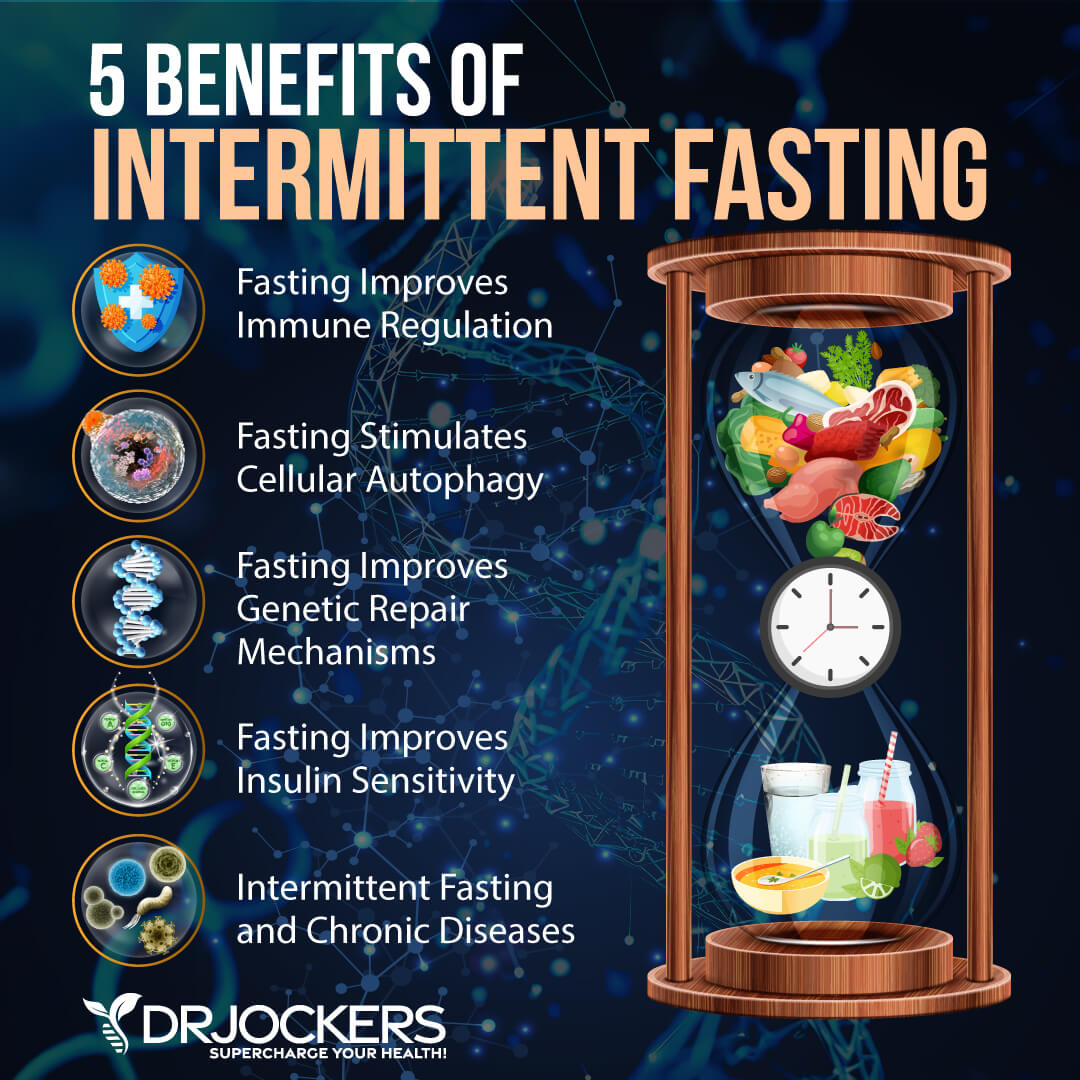
1. Fasting Improves Immune Regulation
The practice of fasting allows the body to put more energy and focus into the process of effective immune regulation. Fasting while drinking water and cleansing beverages flushes out the digestive system and reduces the number of natural microorganisms in the gut. The microorganism count is typically regulated by the immune system. So this allows the immune system to divert energy to other more important areas.
Intermittent fasting is a terrific regulator of the immune system as it controls the level of inflammatory cytokines that are released in the body. Two major cytokines Interleukin-6 and Tumor Necrosis Factor Alpha promote a very potent inflammatory response in the body.
Studies have shown that fasting reduces the release of these inflammatory mediators (1, 2, 3). The immune system modulation that intermittent fasting provides may also be helpful if you have moderate to severe allergies (4).
2. Fasting Stimulates Cellular Autophagy
Fasting also stimulates the process of autophagy, where the body breaks down old, damaged cells and abnormally developing cells to recycle for energy. The process of autophagy is part of the innate immune system and utilizes pattern recognition receptors to identify viral cell invaders.
Intermittent fasting stimulates autophagy processes, which restrict viral infections and the replication of intracellular parasites. This catabolic process helps the body rid itself of intracellular pathogens as well as abnormal cancer cell development. It is also important in protecting the brain and tissue cells from abnormal growths, toxicity and chronic inflammation (5).

3. Fasting Improves Genetic Repair Mechanisms
Research has shown that cells have a greater lifespan during times of food scarcity and famine. Intermittent fasting enhances cellular rejuvenation by acting on certain genetic repair mechanisms. We use less energy to repair a cell than to divide and create new cells.
When food consumption is low, the body slows down cellular division to conserve energy. This is a very important finding as cancer cells are driven by very fast and out of control cellular division. In this way, the act of fasting will reduce the very mechanism that cancer cells use to take control.
The main hormone that governs this cellular repair process is human growth hormone (HGH). HGH creates changes in our metabolism that favor fat burning and muscle tissue sparing. It signals an increased focus on tissue repair where the body uses amino acids and enzymes to repair tissue collagen, which improves the overall functionality of the muscles, tendons, ligaments and bones.
Researchers at the Intermountain Medical Center Heart Institute found that men who had fasted for 24 hours had a 2000% increase in circulating HGH. Women who were tested had a 1300% increase in HGH (6). The researchers found that the fasting individuals had significantly reduced their triglycerides, boosted their HDL cholesterol and stabilized their blood sugar.
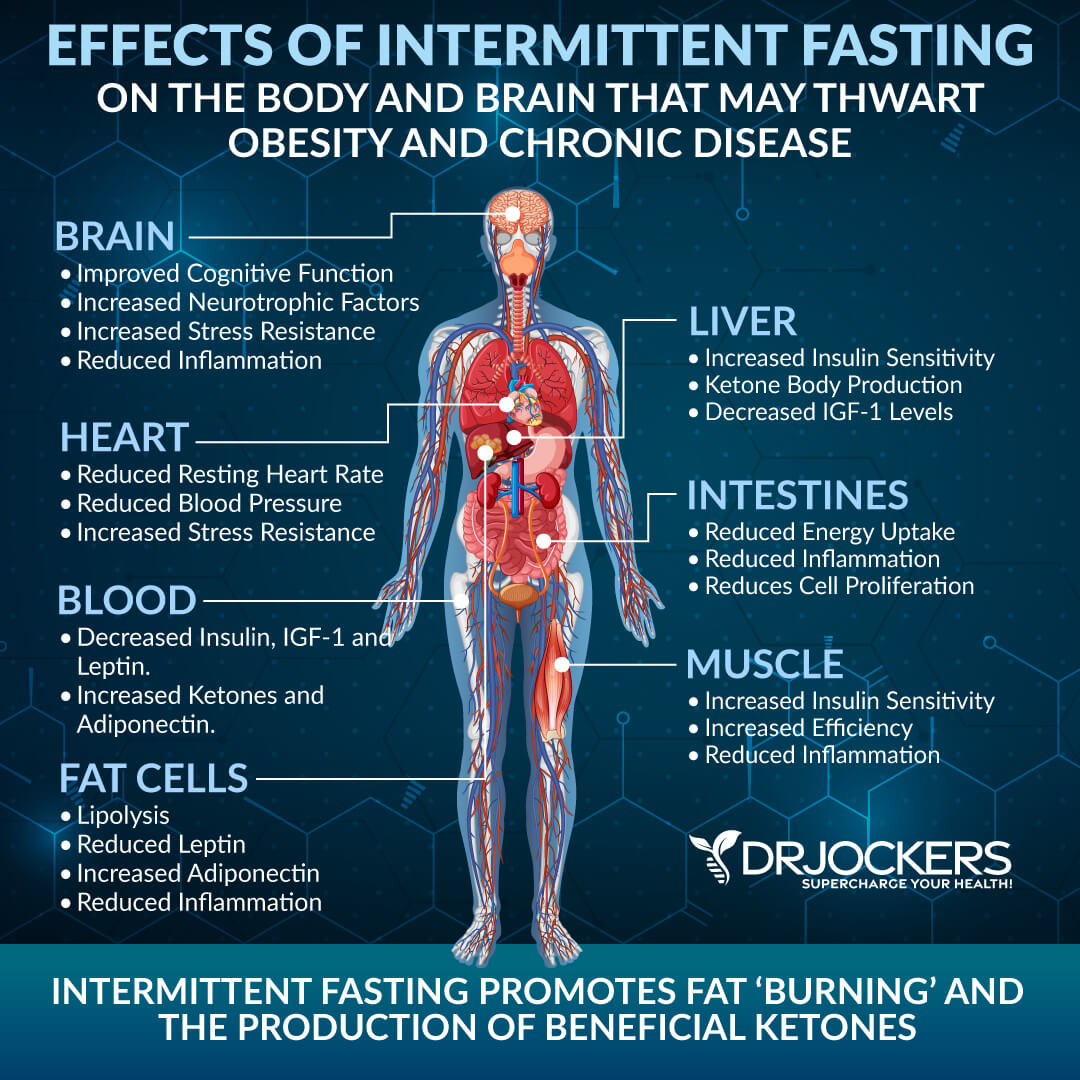
4. Fasting Improves Insulin Sensitivity
Thousands of years of food scarcity led our bodies to develop a protective mechanism to adapt to alternating phases of food abundance and scarcity. During times of food scarcity our cell membranes become more sensitive to insulin. This is especially important when food is scarce because it ensures that every bit of food be efficiently used or stored.
During times of food abundance, the body desensitizes the cells to insulin in an effort to avoid the stress of a heavy calorie intake. This results in elevated insulin levels, increased fat storage and increased oxidative stress and inflammatory conditions in the body.
Today, we have a massive abundance of food sources. We can virtually eat anytime we would like. In fact, many health coaches recommend eating 5-6 small meals throughout the day. This process, however, sends the body the signal of surplus that inhibits key tissue repair hormones that have powerful anti-aging effects.
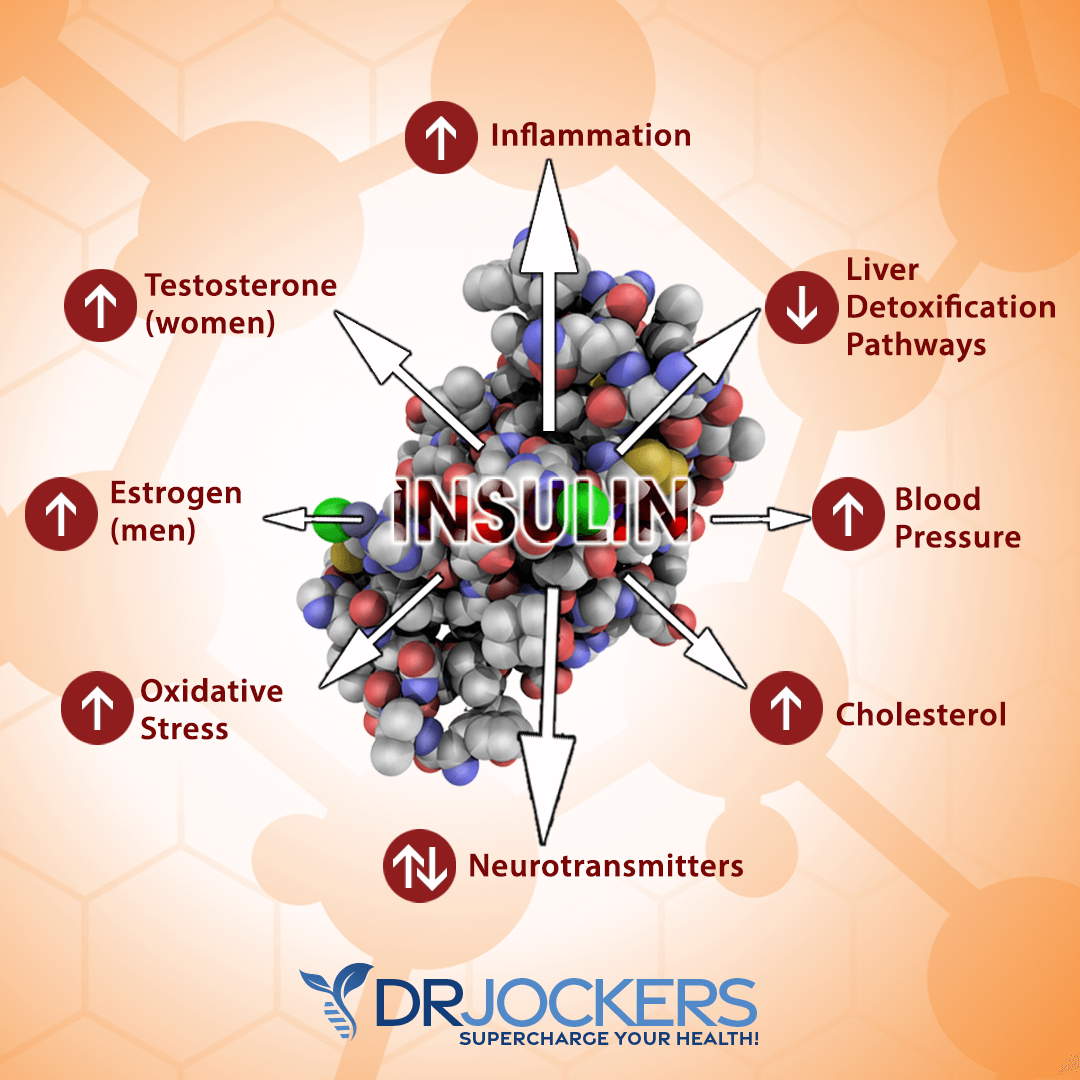
Growth Hormone and Insulin
HGH and insulin are endocrine opposites. This means that they trigger our physiology in an opposite manner. HGH is designed to help improve tissue repair while signaling efficient fuel usage and anti-inflammatory immune activity.
Insulin works to stimulate energy storage and increases both cellular division and inflammation in the body. Insulin is the dominant brother in this chess match. When the bodily conditions demand an insulin release (such as when we eat food, especially sugar and starch), then HGH is inhibited (7, 8).
Fasting has been shown to reduce insulin secretions and improve cellular insulin sensitivity. This results in the body better using insulin so that less insulin is needed when we do consume food. By reducing the overall demand for insulin, we reduce inflammation in the body and improve HGH levels.
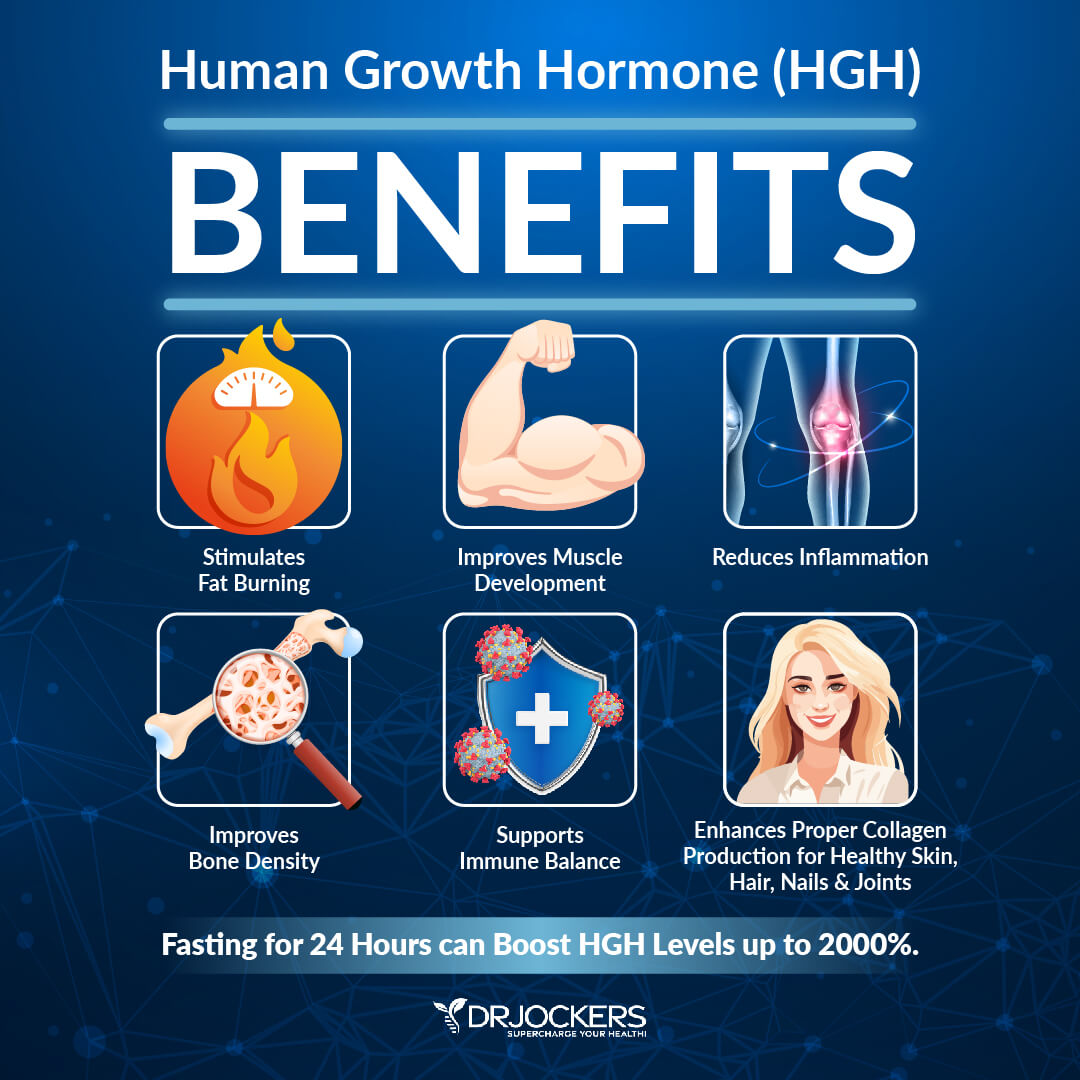
5. Intermittent Fasting and Chronic Diseases
Individuals with autoimmune diseases such as systemic lupus, rheumatoid arthritis, colitis and Crohn’s disease have seen a tremendous improvement in symptoms with the incorporation of intermittent fasting (9). This process reduces the hyper inflammatory processes these individuals undergo and allow for more normalized immune function.
Cancer cells are known to have anywhere from ten to seventy times more insulin receptors than normal cells and depend upon anaerobic metabolism of sugar for fuel. Intermittent fasting starves cancer cells and leaves them vulnerable to free radical damage and ultimate destruction (10, 11).
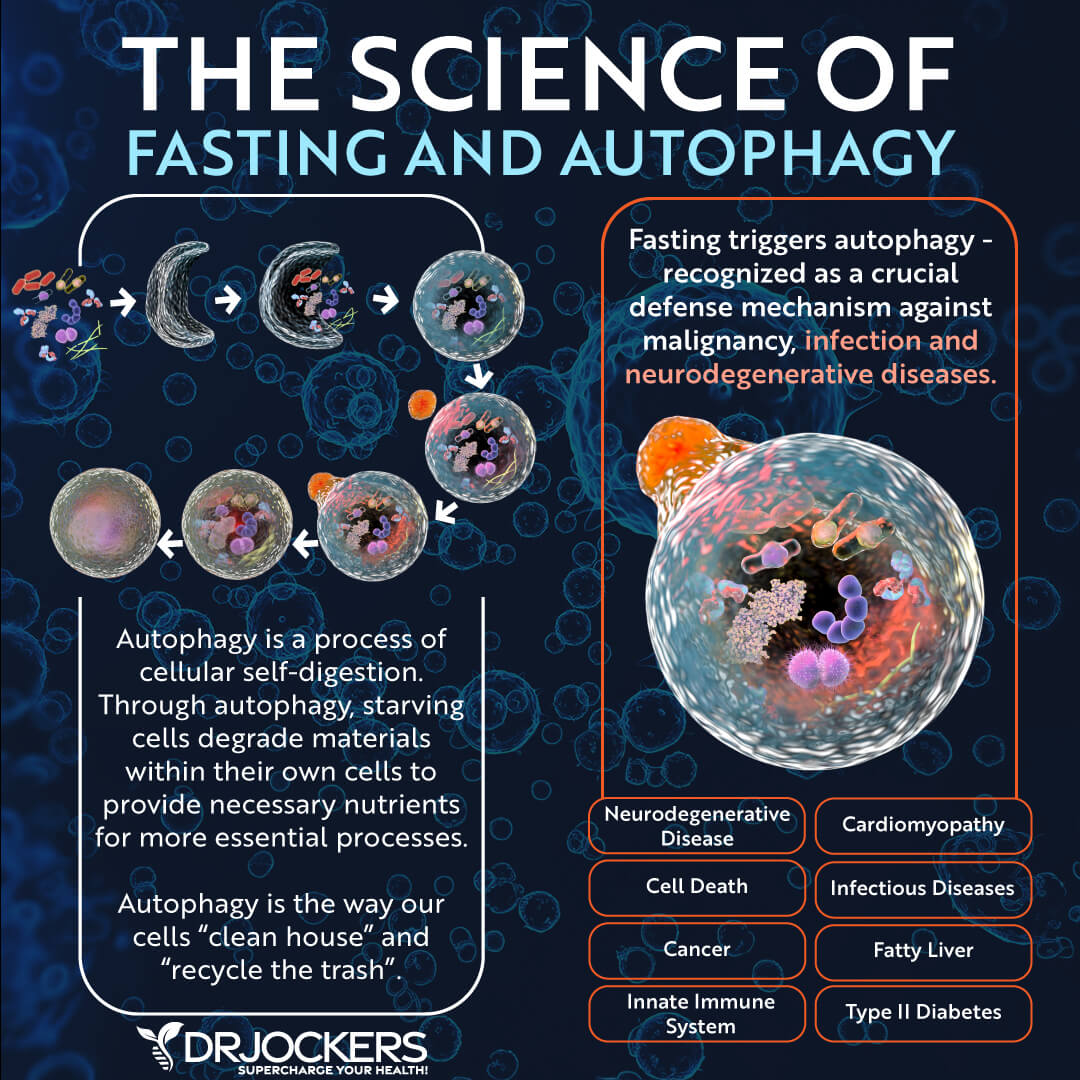
How To Perform Intermittent Fasting:
There are many fasting strategies one could try. These include intermittent fasting, where you go anywhere from 12-36 hours without food. You could also do a 3-5 day water fast or a longer one such as a 7-10 day water fast.
For the purpose of this article, we will stick with intermittent fasting strategies that can be applied on a daily or weekly basis. With fasting we have what we call our building window and our cleansing window. These are defined as follows:
Building Window: The time between our first meal and our last meal. This can also be called the eating window.
Cleansing Window: The time between our last meal of the day and the first meal the next day. This can also be called the fasting window.
Example: If you ate between 12pm and 8pm and then fast until 12pm the next day, than you would have an 8 hour building window and a 16 hour cleansing window.
To help people begin to implement intermittent fasting in a non-intimidating way, I have broken the fasting strategy into 6 different forms. You can pick one that you feel good with and stick with it, or you can try to change it up and challenge yourself with a deeper fast from time to time.
Having some sort of a consistent pattern with intermittent fasting is the best way to develop the metabolic flexibility and energy efficiency that strengthen our bodies internal resistance.
If you have never done an intermittent fast before, begin with the simple fast and stick with it for a while until you feel that it is simple. Be sure to drink 8-16oz of water (as a minimum) when you first wake up to help reduce morning hunger, prolong the fast and improve the cleansing process.
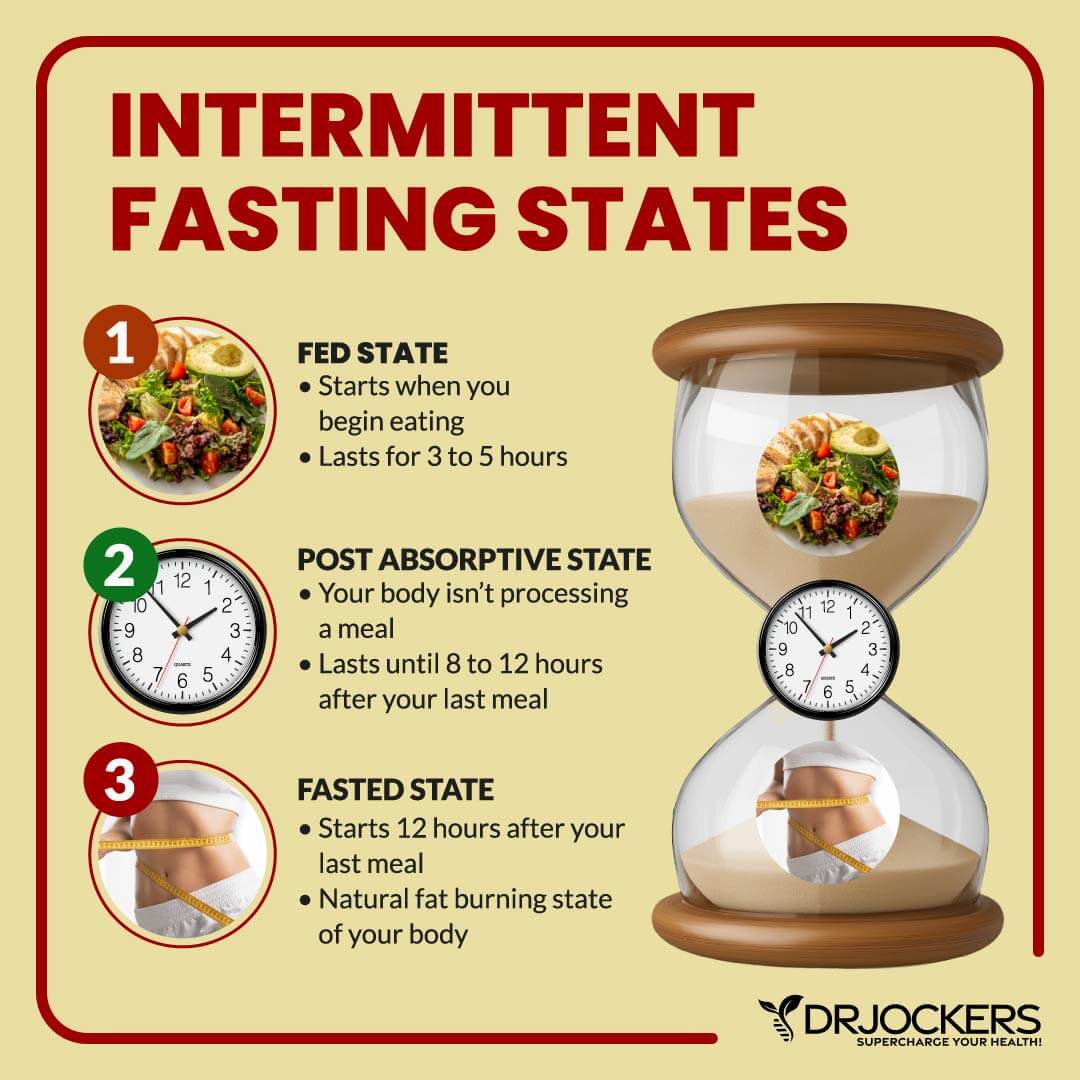
1. Simple Fast:
Basic fast with water only for 12 hours between dinner and breakfast which gives the liver a chance to complete its cycle.
Example: Finish dinner at 7pm and don’t eat again until 7am
This is really the best way to start. Everyone (other than pregnant women and infants) should be able to do a simple fast. This is the first goal to get into a regular pattern of simple fasting.
2. Brunch Fast:
This is where you do a 14 hour fast between dinner and breakfast. It is called the brunch fast because you are going to eat your breakfast a bit later than most.
Example: Finish dinner at 7pm and don’t eat again until 9am
3. Crescendo Fast:
Two times each week you fast for 16 hours by skipping either breakfast or dinner. You would do these on non-consecutive days such as on Monday and Friday.
Example: Finish dinner at 7pm and eat again around 11am-12pm at lunch the next day. Do this on Monday and Friday each week.
4. Cycle Fast:
Three times each week you fast for 16 hours by skipping either breakfast or dinner.
Example: Finish dinner at 7pm and eat again around 11am-12pm at lunch the next day. Do this on Monday, Wednesday and Friday each week.
5. Strong Fast:
Consume all food in a 6-8 hour eating window each day. You would eat 2 meals per day and fast through either breakfast or dinner.
Example: This would mean fasting in the morning and eating between 12-7pm each day or 8am-3pm each day or whatever 6–8-hour period you like best.
6. Warrior Fast:
Ancient warrior would often march all day and would feast at night. Consume all food in a 3-5 hour eating window each day
Example: Consume 2 meals in a 3-5 hour eating window such as 2-6pm or 3-7pm, etc.
7. 1 Day Food Fast:
24 hours each week with only consuming water, greens powders and herbal tea. Some may also include a diluted organic broth during this fast.
One could also do green juices as long as they don’t have any fruit in them other than lemons or limes which contain very little carbohydrate. As an example, making a green juice with lemon, celery, cucumber, kale, parsley and ginger root would be acceptable to get nutrients into the body and maintain the benefits of the fast.
Longer than the 24 hour fast would be considered a “Block Fast,” where you are fasting for 1-3+ days. Many people will fast 4-5 days each month with just liquids. That can be very therapeutic but isn’t considered intermittent fasting and thus is beyond what we are focused on in this article.
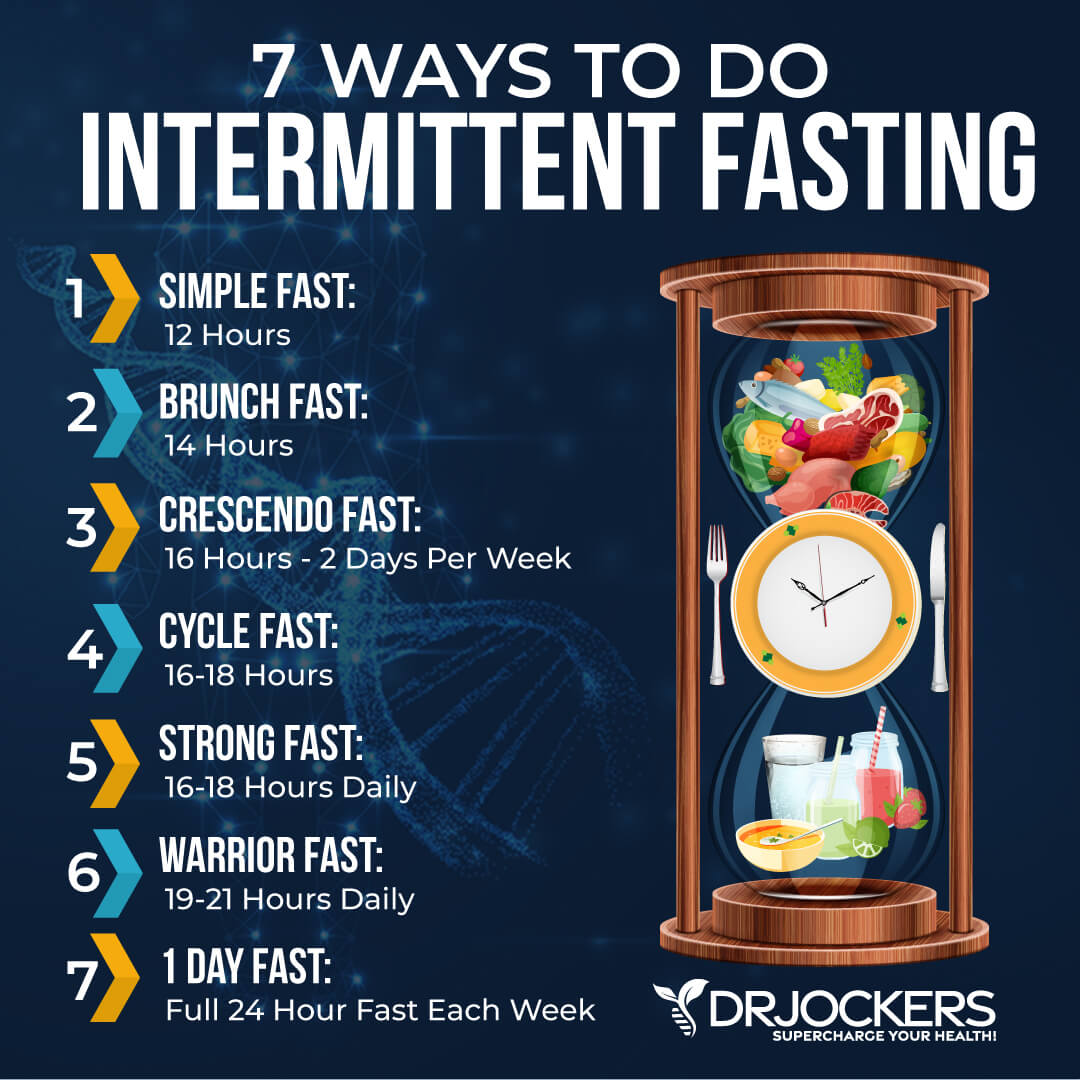
Challenges With Intermittent Fasting
Most people will do quite well by reducing starches and sugars and consuming more good fats such as coconut oil, olives, olive oil and avocados in their diet and incorporating a simple fast each day. The good fats will help with blood sugar stability so the fast will be easier.
When you begin your fast it is important to make sure your blood sugar is stable and you want to focus on hydration during your cleansing window. I recommend drinking at least 8-16oz of water in the first 15 minutes of waking.
Over time you will have a natural craving for more water in the mornings and will easily drink 32-48 oz (at a minimum) of water in the first few hours of waking. I drink one full gallon of clean water (as herbal tea, organic broth, with added lemon or apple cider vinegar, etc) before 12pm every day. It gives me incredible energy, takes away hunger and helps me to move my bowels a few times to fully get rid of the wastes from the day before.
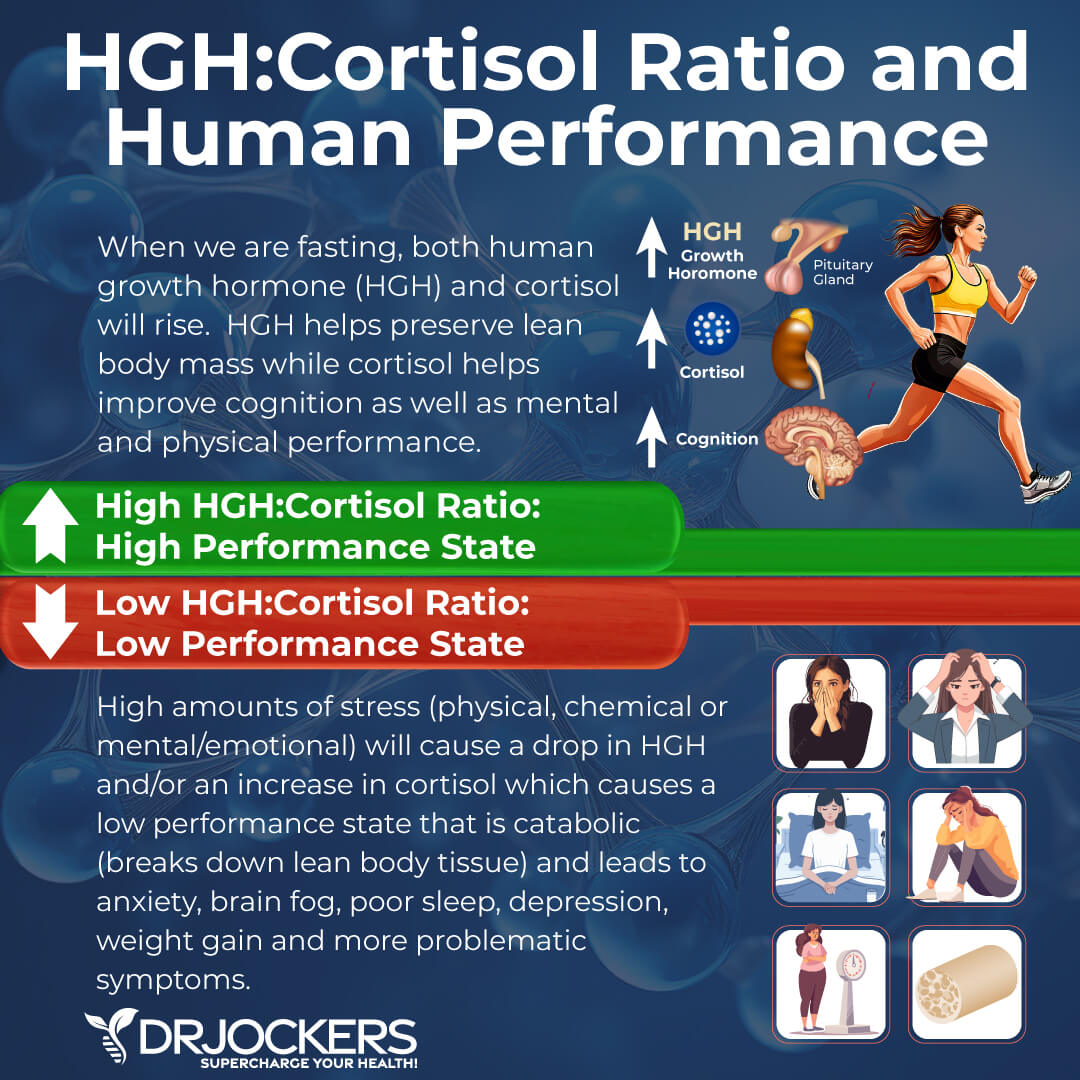
Here are a few conditions that may struggle with longer fasting periods.
1. Adrenal Fatigue/HPA Axis Dysfunction: When an individual is not able to produce enough stress hormone due to hypothalamic-pituitary-adrenal axis dysfunction (also called adrenal fatigue), they can feel fatigued and inflamed as they fast.
These individuals need to focus on hydration and electrolytes. They also need to practice deep breathing, grounding their body with bare feet on the Earth and keeping overall stress levels down. It is best for these individuals to only begin with a 12 hour simple fast, stay well hydrated, use extra minerals and electrolytes and focus on keeping stress levels down during the fasting period.
2. Constipation: If bowels are not moving, it will create a toxic build-up that will drive an increased stress response in the body. This itself can lead to HPA Axis dysfunction or be a byproduct of it. These individuals will need to focus on lots of magnesium and hydration.
I have constipated individuals drink more than one ounce of water per pound of body weight and add about 1/2 tsp of Himalayan salts per gallon of water. I also have them consume lots of good fibers and often will use L-glutamine, smooth move teas, aloe vera and other herbs to help them get going.
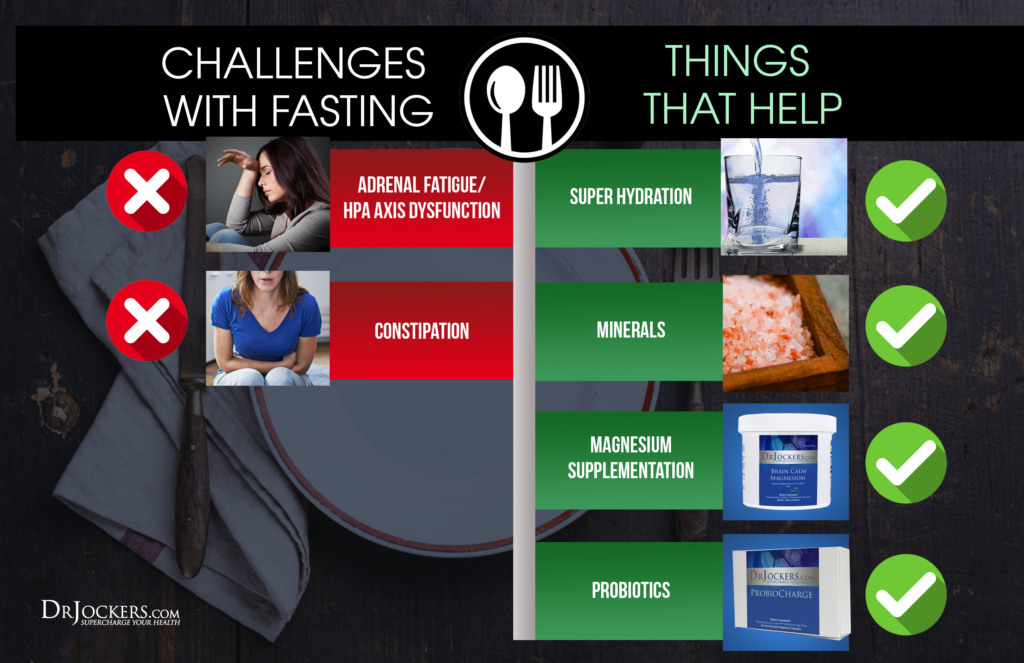
Things That Help
Here are some key strategies to consider when fasting. I personally use and recommend all of these strategies for successfully doing Intermittent fasting.
- Super Hydration: Drink as much clean water, herbal teas, etc as possible. The hydration will help reduce stress hormones and stimulate bowel motility. As I discussed above, drinking 8-16oz immediately upon arising and then continuously hydrating your body throughout your cleansing phase will reduce hunger, stabilize adrenals and keep your bowels moving appropriately.
- Minerals: We need minerals in order to produce electrochemical energy and we need them in order to produce adrenal hormones. When fasting or on a low-carb diet, we actually excrete sodium, so it is SO VITAL to replace this. I recommend adding some Himalayan sea salt to your water, using organic broths, greens powders, etc. during the cleansing phase in order to ensure adequate mineral intake.
- Magnesium supplementation: The body uses magnesium much like a car uses oil. We need magnesium for over 300 vital functions. Magnesium is also very key for calming the adrenals and improving bowel motility. Using a good magnesium citrate, glycinate, malate or threonate supplement can help you function much better during a fast. I use our Brain Calm Magnesium.
- Probiotics: Probiotic supplementation can help to improve bowel tone and reduce gut induced inflammation that would trigger the adrenals.
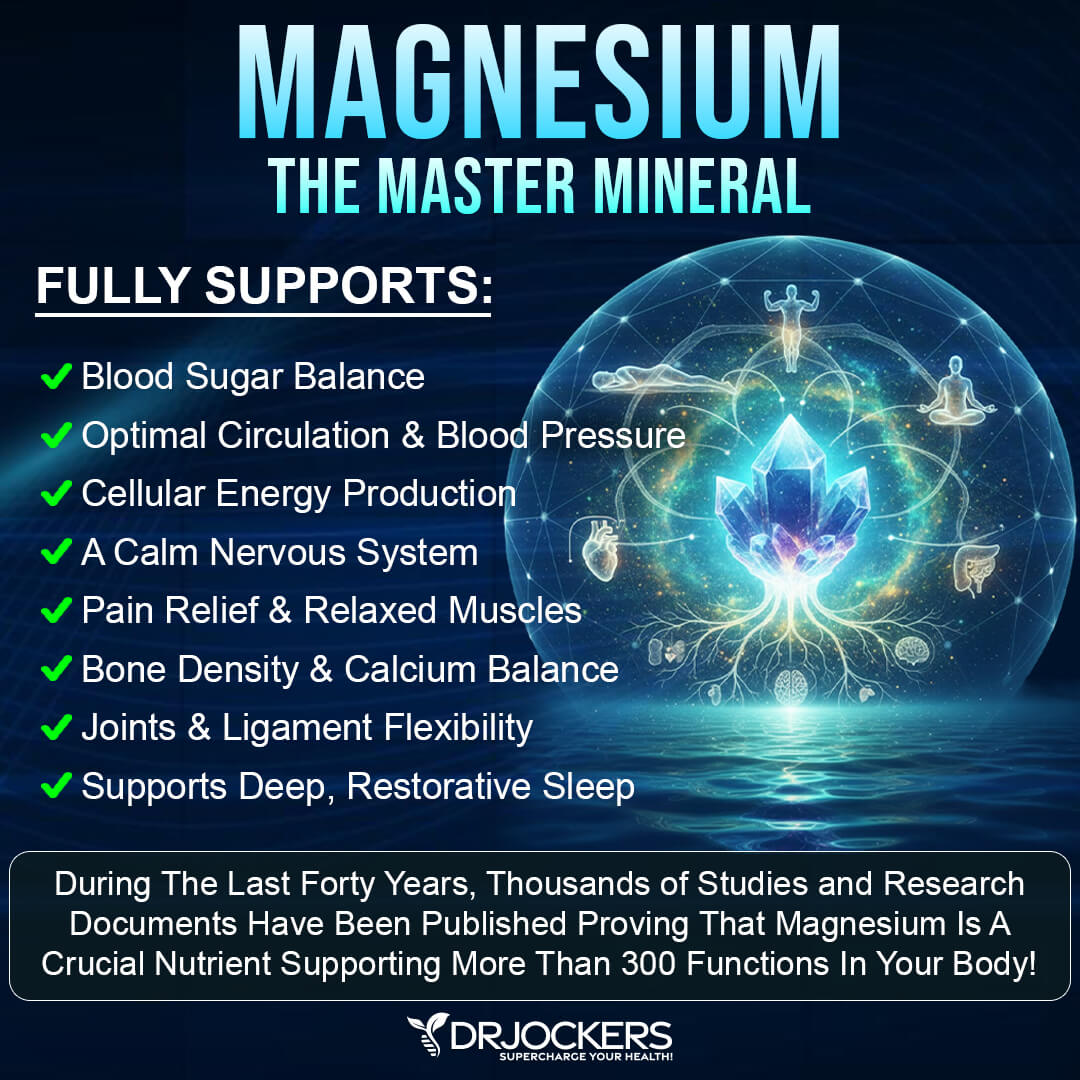
Bone Broth Fasting
Bone broth fasting is especially popular and an effective way to get many of the benefits of fasting. True bone broth provides collagen protein, gelatin, proline, glycine, chondroitin sulfate, glycosamino glycans, hyaluronic acid which all help to heal the gut and improve joint strength and integrity. Additionally, bone broth provides key minerals such as calcium, phophorus, magnesium and potassium which help with energy production, detoxification and healing mechanisms in the body.
Bone broth fasting is fantastic for individuals with autoimmune disease or leaky gut as it will take stress off of the digestive system and provide key nutrients that support healing the gut lining. It will also help reduce muscle loss during a fast as it provides key amino acids that support muscle development and preserve lean body mass.
This sort of fasting strategy is also much easier to apply for most people, as it induces less hunger and cravings. It is a great way to begin implementing fasting if you are new to it or have issues with energy and adrenal hypofunction.
Bone broth fasting will not allow for a high level of cellular autophagy, however, as it contains proteins and amino acids which blunt the autophagy process. For this reason, it may be best to do a 18 hour water/herbal tea fast once per week to get more of the autophagy benefits. You could also try using a diluted organic broth, such as the Imagine Free Range chicken broth, which is more minerals and very low in amino acids.
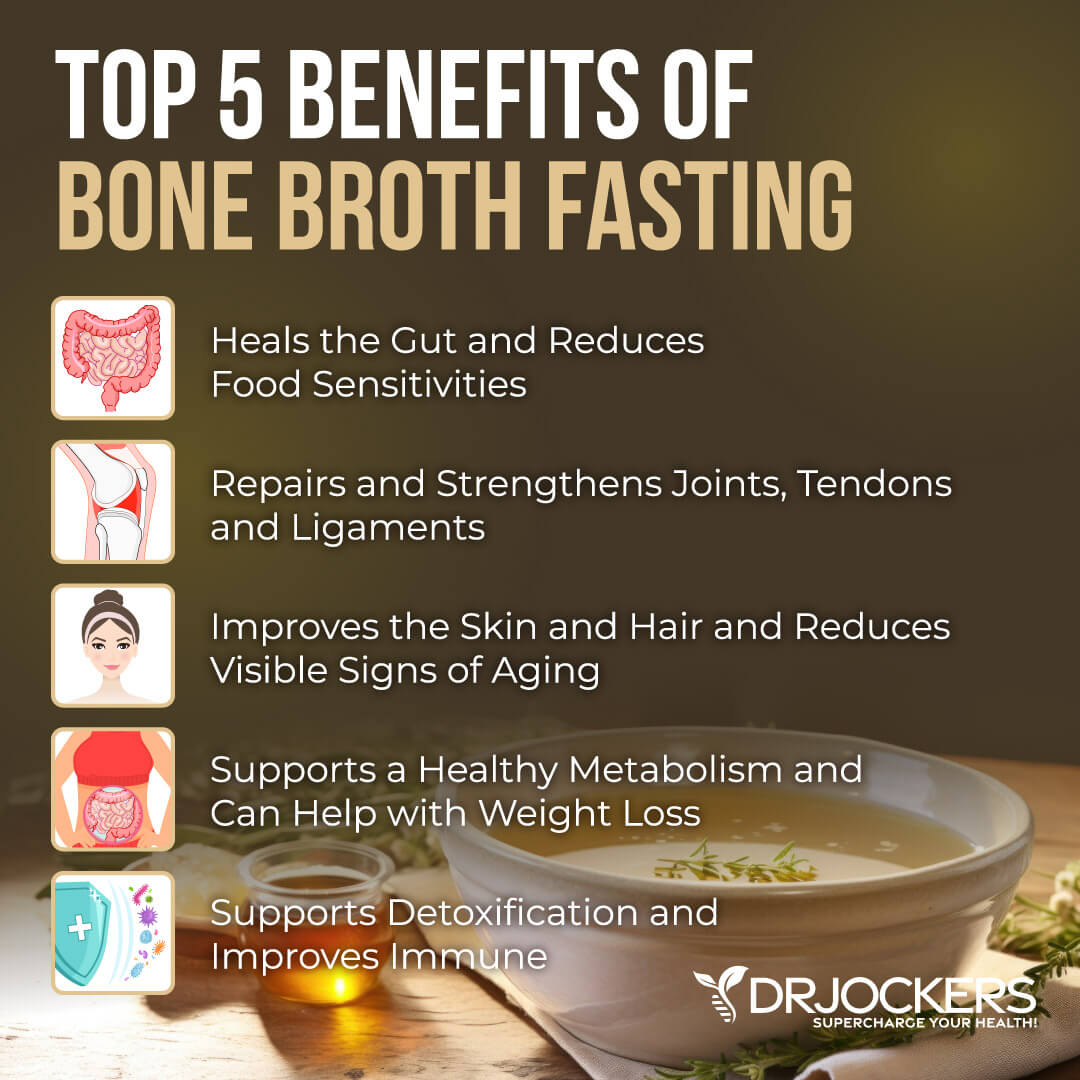
Fat Fasting:
Fat fasting is becoming more and more popularized. This is where you fast from protein and carbohydrates, both of which take away from the majority of the benefits of intermittent fasting. It is protein and carbohydrates that will stimulate insulin and stop autophagy.
Fat fasting is typically done by having coconut oil, grass-fed butter, heavy cream or ghee and/or MCT oil, all of which are completely free of amino acids. These fats help to stimulate the production of ketones, which reduce hunger and cravings and provide a fuel source for the brain and body.
This diet is done with either using these fats and just taking a tsp or tbsp every few hours. You can also add them to organic coffee or tea and make a “Bulletproof coffee” or Bulletproof tea,” which many have had great success using during intermittent fasting.
This sort of a fast will compromise some of the HGH secretion but will help the individual get into ketosis and is easier to follow than a traditional water or herbal tea fast.

Who Shouldn’t Fast?
The only population groups that shouldn’t consider fasting are pregnant women, in particular during the 2nd and 3rd trimesters as the babies are rapidly growing during this stage. During the first trimester the pregnant mother can do a simple fast so long as they feel good doing it.
Newborn babies up until 6-8 months will most likely not do a simple fast as they are rapidly growing and their bodies need more calories than their small stomachs can handle during a 12 hour feeding period. After about 8-9 months, the child will typically sleep for roughly 12 hours over night and will basically do a simple fast.
Most children and teenagers can do a simple fast, although heavy volume athletics may compromise this. If a child is working out intensely for over an hour each day (such as playing basketball or football) than a simple fast may be very challenging.
Some of these are a case-by-case basis, but the same rule of drinking 16-32 oz of water upon arising can dramatically help reduce morning hunger and extend the fast and cleansing period for the body.
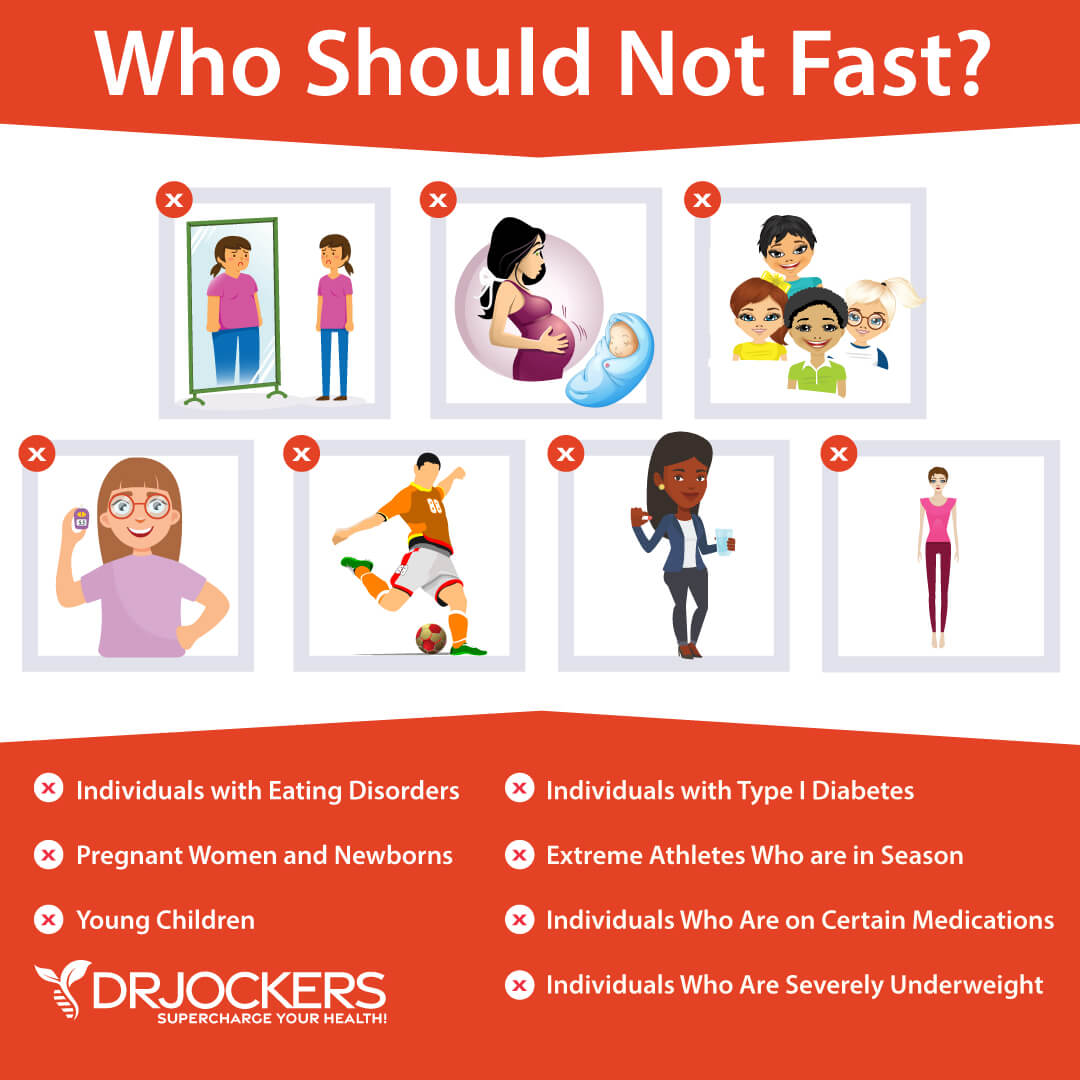
Conclusion:
Incorporating periods of intermittent fasting and using the strategies listed in this article can help the body become stronger and more resilient against the development of chronic disease. Fasting is one of the few health modalities that actually saves us money.
It has been spoken about by wise men and spiritual leaders throughout the centuries and has the potential to greatly improve the health of our mind, body and spirit. I hope you are inspired to begin practicing intermittent fasting from here on out!
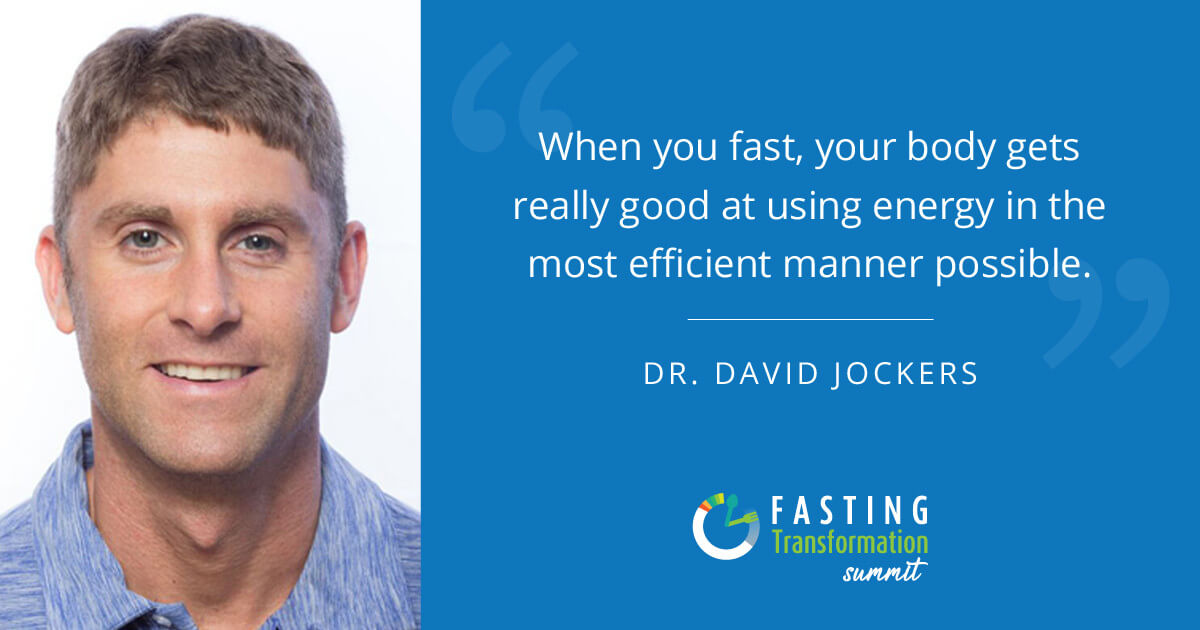
Metabolic Autophagy & Cellular Healing Masterclass
Autophagy is the body’s innate mechanism for deep cellular healing and repair and it helps us reduce the effects of aging, inflammation and cellular damage.
The Nobel Prize in 2016 was awarded to the Japanese researcher Yoshinori Ohsumi for his breakthrough work in helping us understand the process of autophagy and how it works. If you are struggling with your health or desire to optimize your health, activating the appropriate amount of autophagy is a critical component.
This masterclass will give you in-depth video trainings along with image-rich, research-based guides to help you understand the tools and strategies to unlock your body’s dormant healing potential. You will also learn my signature 6-week Metabolic Reset Cycle that will show you how to utilize advanced nutrition strategies for deep cellular healing!
Check out the masterclass here where you will learn my best action steps for optimal healing!
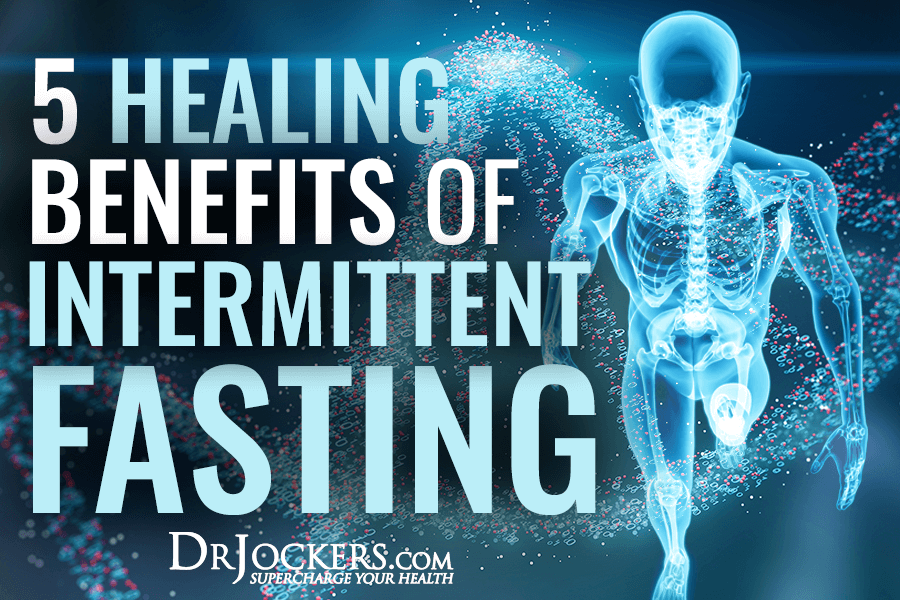
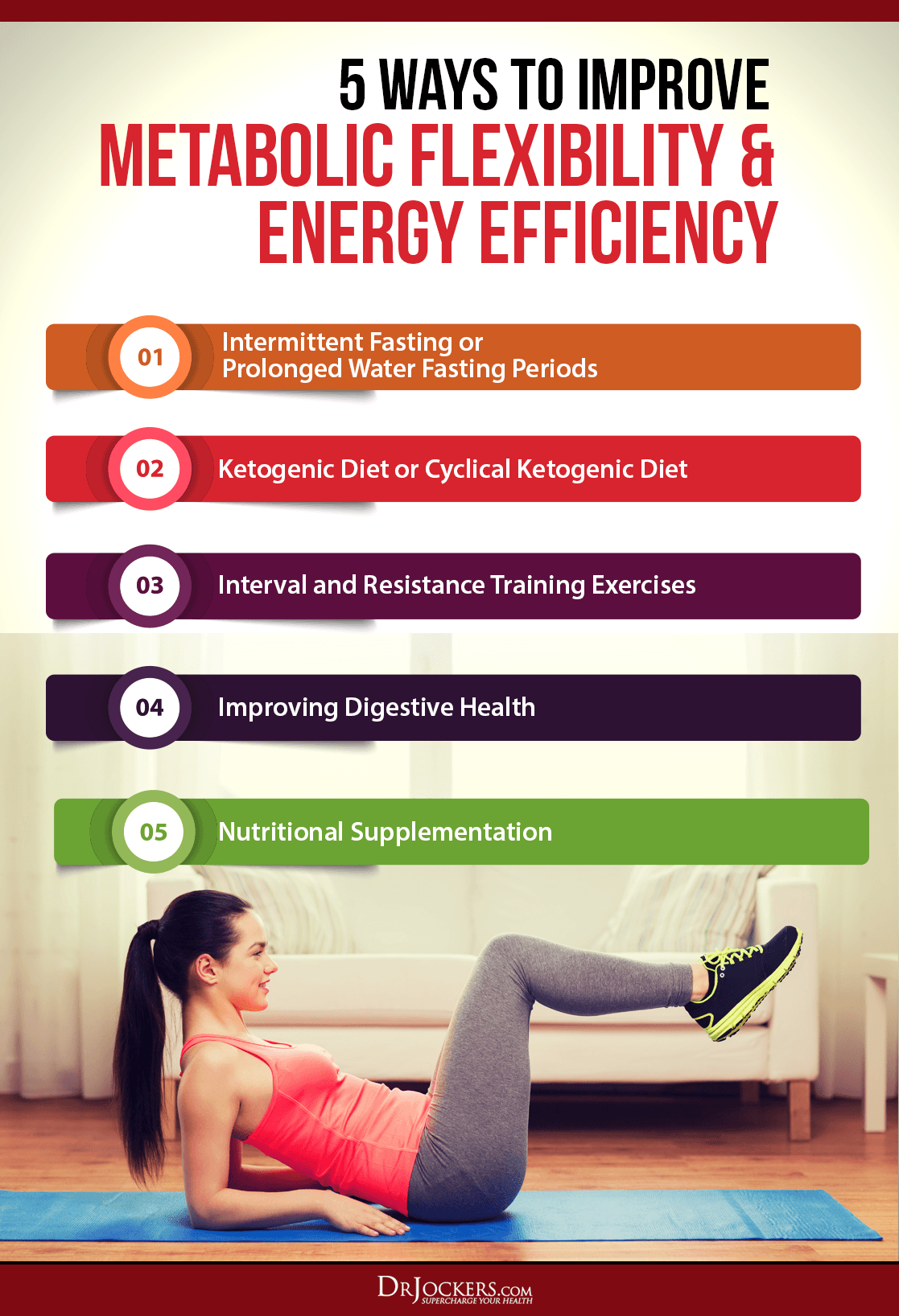
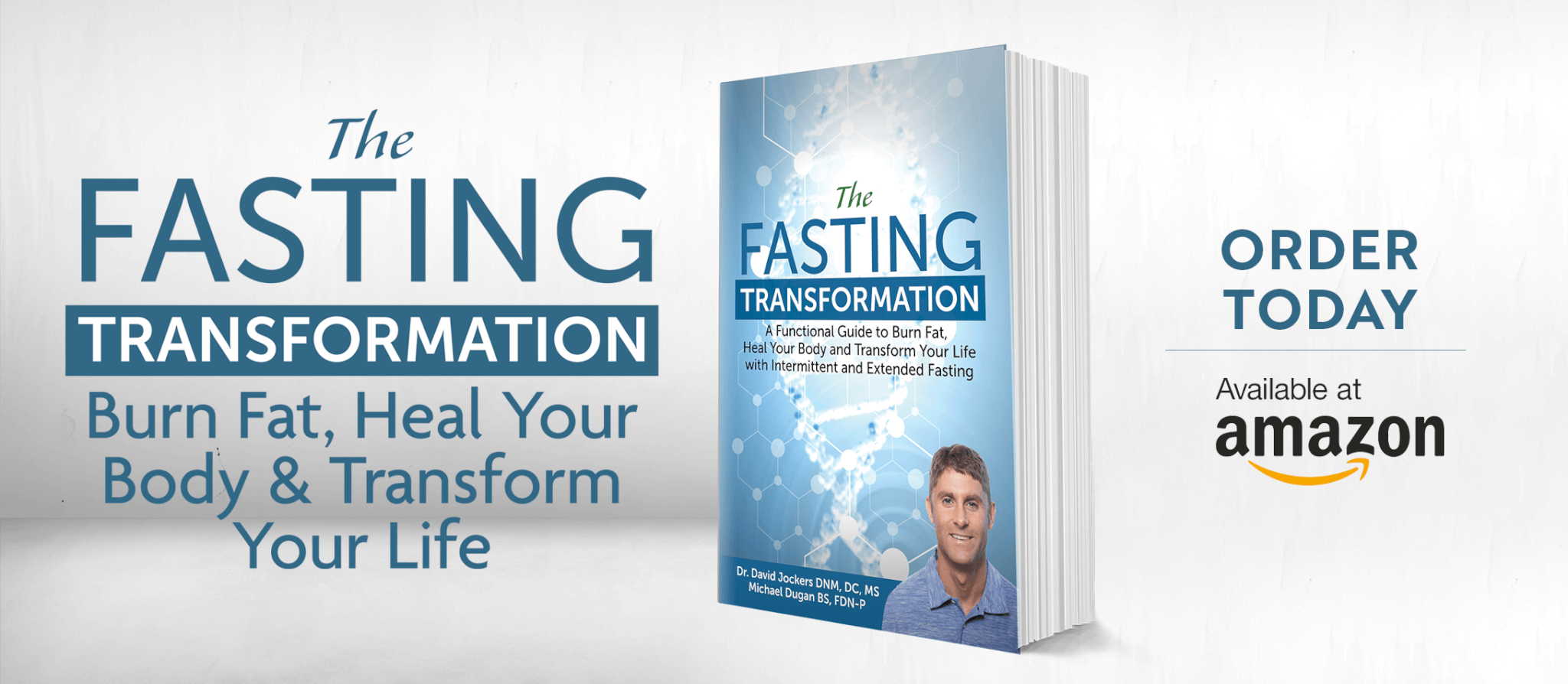
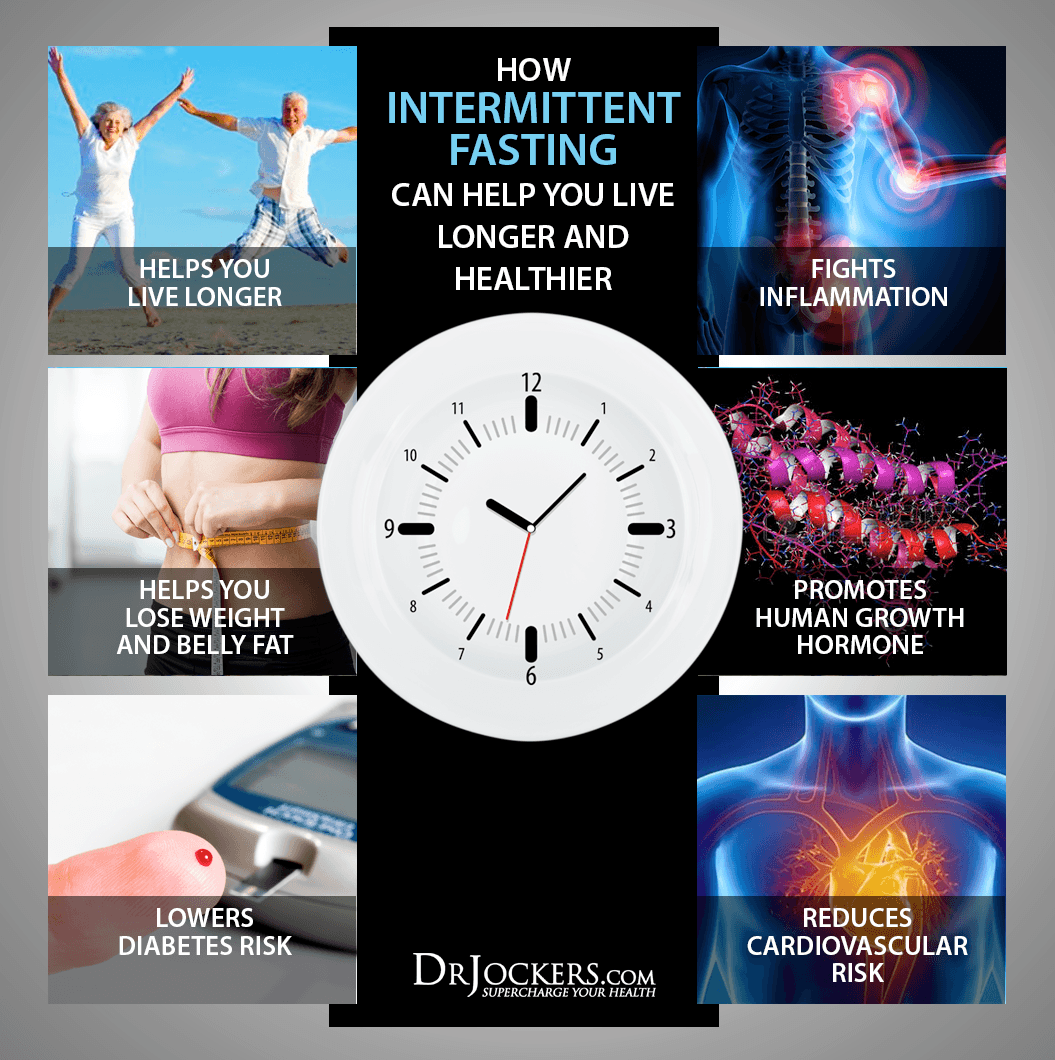
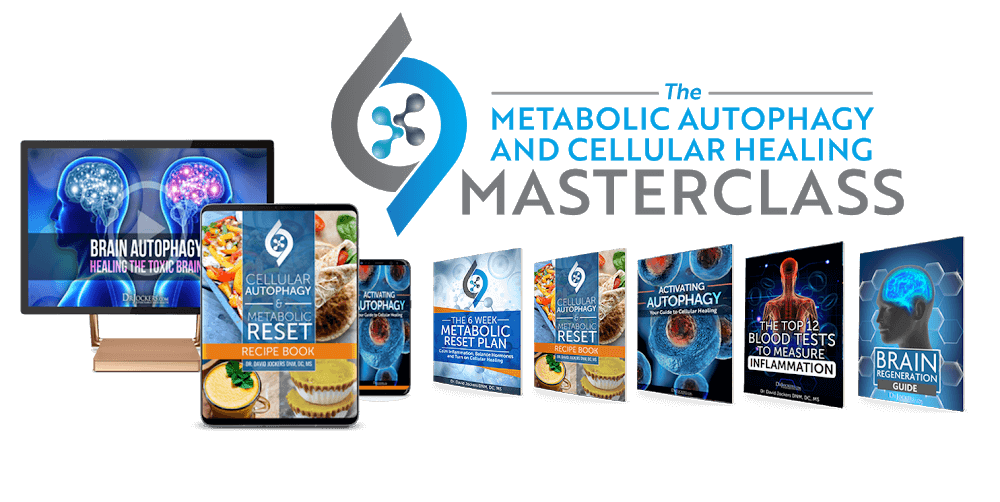



I was diagnosed if hyperthyroidism in September 2016 and since then have been placed on medication. I really wish to cure this disease naturally and I would like to be advised on diets that can aid my decision making. Thank ypu
Hey Bola, try these strategies: https://drjockers.com/hyperthyroidism/
•Very much enjoyed this article! I read it after watching your YouTube video. Lots of excellent information.
•I am a 48-year-old woman, 5’8, 162-165 pounds. I do a 16 hour fast 4 to 5 days a week, with a fat fast one day a week.
•I take all the supplements that you have recommended and then some! I also take an antidepressant, anti-anxiety, and daily antibiotic for acne–I KNOW 🙁
• due to a broken foot about seven months ago, I am limited to high-intensity cardio, but I do manage to walk about 4 to 5 days per week, I also do toning with dumbbells and/or yoga 2 to 3 days per week.
•I’ve noticed an increase in my energy level, but my weight is not coming off as quickly as I’d like it too.
•What do I need to do differently?
Hey Leigh, thank you for reading and sharing your feedback! I have an article coming out in the next few days that should help you with this on reasons for weight loss plateaus on keto. Be on the lookout!
Hi Dr. Jockers,
Can I do a 18 h fast on one coffee , &lots of water &lemon&cayenne, and cider vinegar?
Then have 2 bone broths & carb meals ? 12.30 pm & 4 pm.
Everytime i do that and I have my first meal I feel a slight pain on my left side under the ribcage.
Any reason why ?
It lasts around 1-3 h then goes away.
I am taking a good magnesium supplement when I fast. It helps me with bowel movements.
Paris 🙂
You can definitely do that Paris. If those meals are high in carbs and you are experiencing pain on the left side, it could be related to your pancreas. Following some of the strategies in this article may help: https://drjockers.com/pancreatitis/
Great article! Best I’ve read on intermittent fasting. Thank you!
Thank you Jennifer!
Love your info. My question, my mom is 91 fairly healthy, her Dr. said that the Keto way of eating is not good for someone her age??? I do not see the elederly listed on who should not fast. So should I just have her fast and not eat keto?
She is pre-diabetic, blood pressure runs around 155/75 (at home), beginings of COPD and Congestive Heart failure. Super alert and present. I want to keep her healthy as possible to keep her quality of life while she is here. The Dr. is threatening to put her on BP meds and BS meds. 🙁
Hey Becky, I would start out by lowering carbs, increasing fats, and supplementing with an MCT powder throughout the day! After doing this for a month or so you can experiment with fasting if she responds well!
Great, straightforward, informative, and creative article Dr. Jockers! I also fast from 8 PM – 12 PM. Makes my mornings quite simple (and less instances for being late at work lol). Only issue I get sometimes is constipation. What foods are high in magnesium?
Hey Levi! Here are two great articles on that:
https://drjockers.com/best-magnesium-rich-foods/
https://drjockers.com/11-common-keto-side-effects/
Hi Doctor,
Can someone who is taking ARV’s do a 24 hour fasting?
Always be sure to discuss this with your prescribing physician.
I did what you call a strong fast, eating only between 1-7 pm every day for a few weeks. I gained weight and fat! I eat mostly low carb/Paleo. I would eat 2 meals and a snack during the eating time. I have thyroiditis if that information helps. I would appreciate any help in understanding why I gained.
Sorry to hear that! Here is a helpful article for you to figure out why: https://drjockers.com/weight-loss-hacks/
My cousin who is 34is diagnosed of prostate cancer. Can the intermittent fasting help to cure him?
Sorry to hear this! While IF is certantly not a “cure,” it can be a helpful strategy to apply. Here is a helpful article as well: https://drjockers.com/12-ways-improve-prostate/
Here is another one as well: https://drjockers.com/beginning-cancer-healing-journey/
Hi, so, I have Type 1 Diabetes, does the fasting benefits the same to me? And I have heard that loosing weight with diabetes its such a struggle, cause it takes much time to see results. Is this true, and how can I loose weight without being in risk?
Hey Gio, Yes, intermittent fasting is a great strategy to beat diabetes! I would recommend following the tips this article has to help stabilize blood sugar and lower inflammation in the body: https://drjockers.com/diabetes/
Hi just one issue I have gallstones does fasting effect attacks at all?
Just doing my first 3 day water fast, but have done a 12 noon to 5pm eating window 7 days a week in past.
Thanks for any info on gallbladder issue.
Hey Janine, as long as you break your fast correctly you shouldn’t have any issues. Here is a helpful article on how to break your fast https://drjockers.com/extended-fasting/
Here is another article on strategies to get rid of gallstones https://drjockers.com/beat-gallstones-naturally/
I love your articles Dr. Jockers, thank you for making your knowledge available to all your followers!!
Q: is drinking collagen or taking supplements, herbal tinctures,… etc breaking the fast?
Thank you!
Thank you! Yes, if you take anything with calories (such as collagen or fish oil or MCT oil it does break the fast). Herbal tinctures (unless sweetened with a calorie source) do not break the fast.
What kind of foods would you recommend to eat during the building window. I gave engineering cancer with possible metastasis to the lungs. I would like to try the intermittent fasting to help.
Hey Connie – so sorry to hear this! I would read this article and follow a plant-based keto diet https://drjockers.com/plant-based-ketogenic-diet/
Thank you for this thorough article. It was so informative and Inspiring! I learn so much from you.
Great to hear that! Blessings!
Hi there Dr. Jockers,
I am asking for a friend…could fasting help Tinnitus? Her Tinnitus started a couple years ago. I was thinking I read somewhere here or somewhere else about this.
Thank you,
Jennifer
Yes it can help! Here is a helpful article on tinnitus: https://drjockers.com/tinnitus/